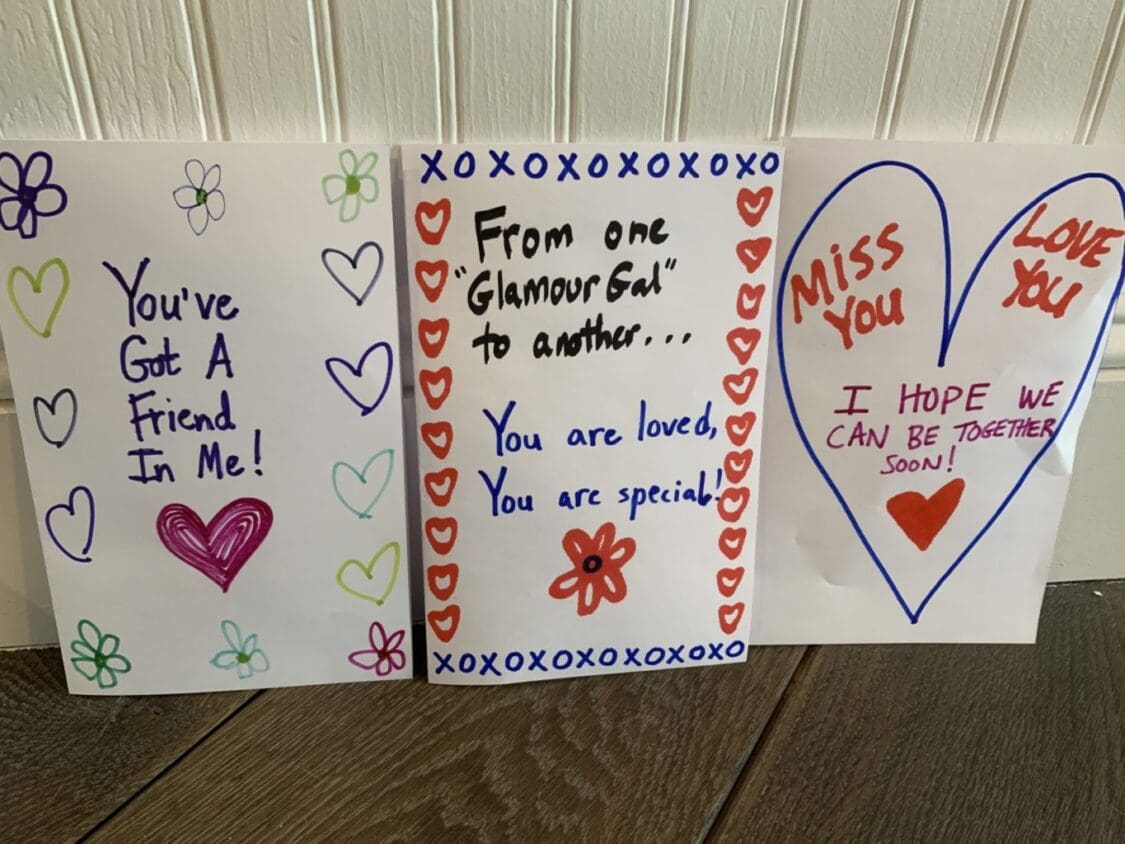
USC gerontology PhD candidate Carly Roman video chats with her grandmother, Marlene Schulman.
Members of the USC Student Gerontology Association launched an intergenerational phone chain to keep in touch with older adults across the country. In addition, through participation in the USC chapter of the service group Glamour Gals, students are sending cards to older adults in senior living communities.
These projects aim to combat loneliness and provide social support during this period of forced separation. But participants of all ages benefit in other ways as well, says USC Leonard Davis School PhD candidate Carly Roman. She knows this firsthand from her involvement in these groups — she helped launch the phone chain and co-founded the Glamour Gals chapter at USC — and from her research, which looks at the gains of giving back.
“It’s not just the people receiving support who benefit; researchers have shown that helping others is also important for health and well-being,” said Roman, citing a 2016 study which found that individuals randomly assigned to perform an “act of kindness” for someone else had increased happiness compared to those who performed the “act of kindness” for themselves.
Additional studies have documented that those who volunteer have better mental and physical health outcomes, says Roman. For older adults, even seemingly small gestures, like providing advice or sharing a recipe, can be especially meaningful because they provide an opportunity for them to express generativity, a feeling of contributing to the well-being of others that has been linked to decreased depression, increased psychological well-being, later onset of physical disability, and reduced mortality.
The concept of generativity has been largely studied in relation to older individuals directing care and concern only toward younger generations, a shortcoming that Roman wants to address in her doctoral research, which is supported by a prestigious National Science Foundation fellowship.
“Originally, generativity was conceptualized as people in mid-life leaving a positive legacy and lasting impact on younger generations, so definitions and measurements usually emphasize older people helping younger people. However, I think this definition is a little limiting because people can probably still be considered generative if they are directing care and concern toward someone their own age,” she said. “If my research shows that providing support to peers increases generativity and well-being as much as providing support to younger generations, we can expand the scope of generativity research to include peer generativity, and maybe investigate generativity and well-being benefits for younger people helping older people as well.”
Roman says there is no need to wait for her results to find out. She’s been staying in close contact with her grandmother, Marlene Schulman, and she encourages people of all ages to reach out to one another.
“Call up a friend or neighbor, old or young, and chat,” she says. “The natural social support that you provide each other may give you both a much-needed boost.”





